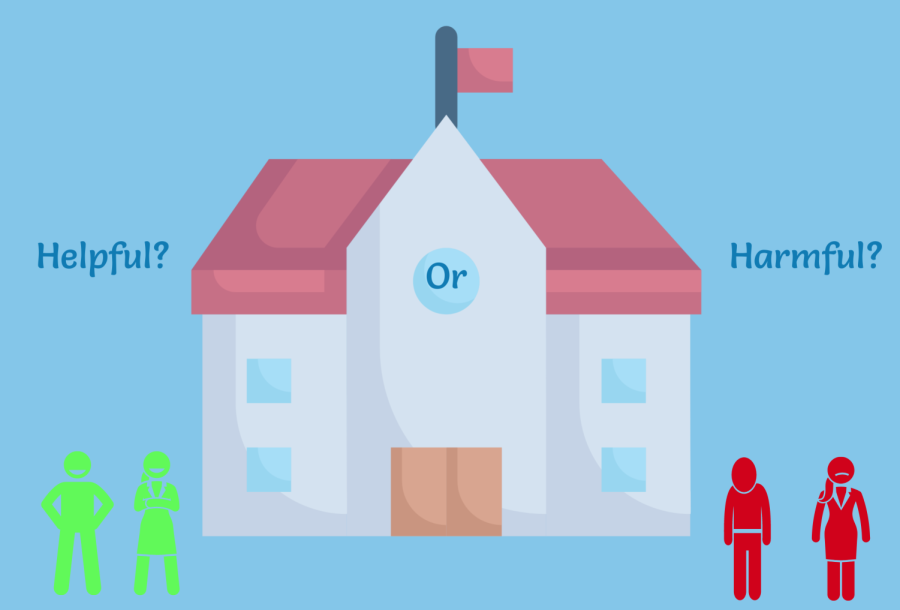The Assumed Uselessness of School
The uselessness of school has been a topic of debate for several decades now.
Students find themselves feeling miserable when having to wake up at 6 am each morning, arrive at school, sit at a desk, and listen to lectures for 7 different subjects until 3 pm. School can be seen as not useful for the future, especially when discussing certain school subjects that a person might claim they will not pursue in their later life or career.
In the 1800’s, education had an entirely different connotation. The idea of educating children was a rarer concept. Typically, families needed their children to help with the harvest or at their farms in order to feed themselves. Education became a privilege for all. Despite the extent that families had to go to in order to receive education, such as walking 5 miles, sacrificing helping hands, the crowded rooms and single teacher, school was still greatly valued.
After centuries of this repeated, systemic, and rigorous structure, students have lost interest in being educated. Feelings of boredom, exhaustion, and unconcern now dominate interpretations of school. Instead of it being seen as an opportunity for growth, school is seen as a prison where students are unable to express themselves. According to San Franciscan former public school teacher, writer, and lawyer, Gail Cornwall, “students are bored from a third to half the time they spend in school […] One survey of high school dropouts found that almost half reported giving up on school because of boredom” (Cornwall).
Most students wonder, what could be the point in learning these subjects?
Subjects like history are said to be able to provide students with some sort of background that could help them in future situations or circumstances. According to the Department of History at the University of Wisconsin-Madison, “studying history helps us understand and grapple with complex questions and dilemmas by examining how the past has shaped (and continues to shape) global, national, and local relationships between societies and people.”
Math and its many branches may not be used later in life but it could encourage systematic thought and close thinking. According to the Department of Mathematics at Vanderbilt University, “by studying math you develop analytical skills and an analytical attitude.” After years of learning math, a new cognitive and almost automatic way to break down problems and divide them into steps is created and becomes second nature.
The effectiveness in taking a course such as English can be a controversial topic. While the various amounts of literature and dull novels cause immense boredom, writing becomes useful in many areas of life. Writing can be useful not because an individual might write essays in the future, but because it can teach students to defend their arguments, have clear communication, and refine their ideas.
Oftentimes, the sheer amount of different subjects distracts from the broader picture. Students might focus on the subject alone and their dislike for it. Instead, when considering the bigger picture, school could create flexibility and build a skillset that would provide stability. School is more about conditioning and not necessarily about learning the topic itself.
Education can be useful and can also not be. This never ending and almost insoluble argument seems to depend on the student themselves. Education and its difficult system have not changed over the past centuries. The way students approach it has definitely changed.




